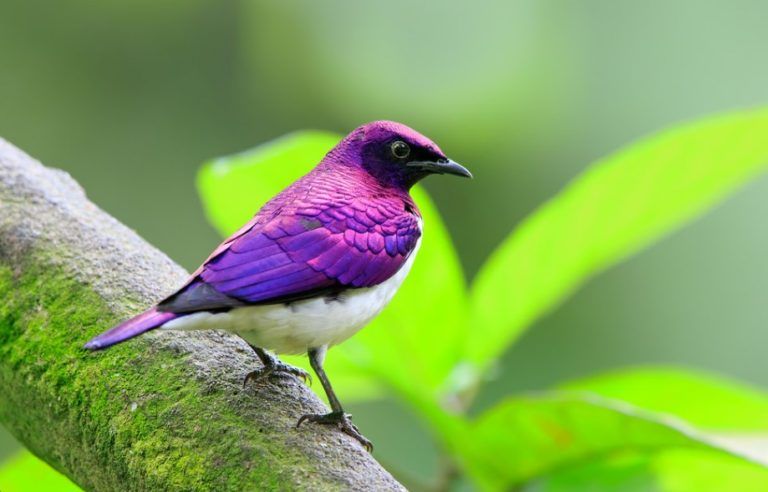Bird watching, also known as birding, is a popular recreational activity that allows enthusiasts to connect with nature and observe the diverse and captivating world of birds. From the breathtaking beauty of colorful plumage to the mesmerizing melodies of their songs, birds offer a window into the natural world that is both educational and enriching. In this article, we will delve into the art of bird watching, its benefits, and explore some fascinating bird species that avid birders often encounter.
The Joy of Bird Watching: Connecting with Nature
- Bird watching offers a serene and immersive experience in the great outdoors, fostering a deeper connection with the environment.
2. Tools of the Trade: Binoculars and Field Guides
- Binoculars are essential for observing birds from a distance, and field guides help identify various species based on their physical characteristics.
3. Habitat Exploration: Where to Find Birds
- Different bird species inhabit specific habitats, such as forests, wetlands, grasslands, and coastal areas.
4. Behavior Observation: Studying Bird Habits
- Bird watchers observe behaviors such as feeding, mating, nesting, and migration patterns.
5. Benefits of Bird Watching: Mind and Body Wellness
- Bird watching promotes relaxation, reduces stress, enhances mental focus, and encourages physical activity.
6. Common Bird Species: Feathered Residents
- Sparrows, robins, pigeons, and crows are among the familiar bird species found in urban and suburban areas.
7. Migratory Wonders: Seasonal Visitors
- Birds like swallows, warblers, and sandpipers undertake long migrations, captivating birders with their journeys.
8. Birds of Prey: Majestic Hunters
- Eagles, hawks, falcons, and owls are renowned for their powerful talons, keen eyesight, and impressive hunting skills.
9. Waterfowl and Shorebirds: Aquatic Beauties – Ducks, geese, herons, and gulls thrive in wetland and coastal habitats, showcasing a diverse range of adaptations.
10. Exotic Tropical Birds: Vibrant Plumage – Parrots, toucans, and hummingbirds are known for their vivid colors and unique characteristics.
11. Raptors: Masters of Flight – Raptors, or birds of prey, possess remarkable aerial agility and are often the focus of bird watching expeditions.
12. Songbirds: Melodious Performers – Songbirds, such as thrushes, finches, and sparrows, delight enthusiasts with their melodious tunes.
13. Endangered Species: Conservation Efforts – Some bird species, like the California Condor and the Kakapo, face critical endangerment, prompting conservation initiatives.
14. Rare Sightings: Excitement of Discovery – Bird watchers relish rare sightings of elusive species, contributing to the excitement of the hobby.
15. Citizen Science: Contributing to Research – Bird watchers play a vital role in collecting data for scientific research and conservation efforts.
Bird watching is an enriching and rewarding hobby that allows individuals to marvel at the beauty, diversity, and intricacies of the avian world. Whether observing common backyard birds or embarking on journeys to witness rare and exotic species, bird watchers find solace, inspiration, and a sense of wonder in the natural world. Through patient observation, continuous learning, and an appreciation for the delicate balance of ecosystems, bird enthusiasts contribute to the protection and preservation of our feathered friends for generations to come.
Bird Care and Feeding: Nurturing Feathered Companions with Love and Responsibility
Keeping birds as pets can be a delightful and rewarding experience. Whether you have a canary, parrot, finch, or budgerigar, providing proper care and nutrition is essential for the well-being and happiness of your feathered companions. In this article, we will explore the key aspects of bird care and feeding, offering insights and tips to ensure your avian friends lead healthy and fulfilling lives.
Choosing the Right Cage: Comfort and Safety
- Select a cage that provides adequate space, appropriate bar spacing, and safety features to prevent escapes and injuries.
2. Cage Placement: Optimal Environment
- Place the cage in a draft-free area away from direct sunlight, extreme temperatures, and noisy household appliances.
3. Perches and Toys: Enrichment and Entertainment
- Provide a variety of perches of different thicknesses and textures, along with stimulating toys for mental and physical stimulation.
4. Nutrition Basics: Balanced Diet
- Offer a well-balanced diet consisting of high-quality commercial bird food, fresh vegetables, fruits, and occasional protein sources.
5. Fresh Water: Hydration is Key
- Ensure a clean and fresh supply of water is available at all times to keep your bird properly hydrated.
6. Nutritional Diversity: Exploring Food Options
- Introduce a variety of foods to mimic the natural diet of your bird species, promoting overall health.
7. Grooming: Feather and Beak Care
- Regularly trim nails, beaks, and provide opportunities for bathing or misting to maintain your bird’s cleanliness.
8. Social Interaction: Companionship and Bonding
- Spend time interacting with your bird daily to build trust, prevent loneliness, and foster a strong bond.
9. Exercise and Flight: Freedom to Move – Allow your bird supervised flight time outside the cage to promote exercise and mental well-being.
10. Routine Veterinary Care: Health Checkups – Schedule regular visits to an avian veterinarian for health assessments, vaccinations, and parasite control.
11. Avian Enrichment: Mental Stimulation – Provide opportunities for mental engagement through puzzles, foraging toys, and challenges.
12. Sunlight Exposure: Natural Light Benefits – Allow your bird exposure to natural sunlight or provide full-spectrum lighting to support vitamin D production.
13. Avoid Harmful Foods: Toxic Substances – Keep your bird away from foods that are toxic to them, such as chocolate, caffeine, and avocados.
14. Cage Hygiene: Clean Living Space – Regularly clean the cage, perches, dishes, and toys to prevent the growth of bacteria and ensure a healthy environment.
15. Consider a Friend: Companion Birds – Some bird species thrive with the company of another bird, offering social interaction and companionship.
Caring for and feeding pet birds requires dedication, knowledge, and a genuine love for these unique and charming creatures. By providing a safe, comfortable, and stimulating environment, along with a nutritious and varied diet, you can ensure your feathered friends enjoy a happy and fulfilling life. The bond you cultivate with your bird through proper care, positive interactions, and shared experiences will contribute to a meaningful and joyful companionship that enriches both your lives.


















